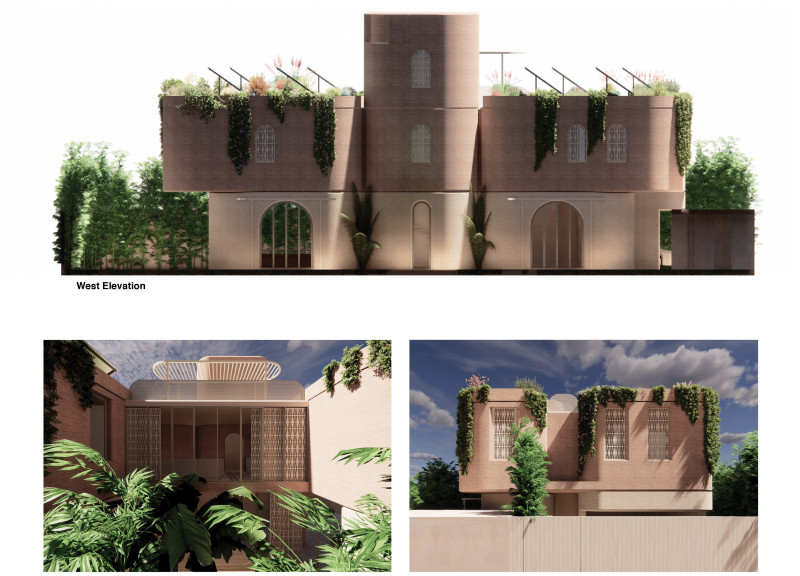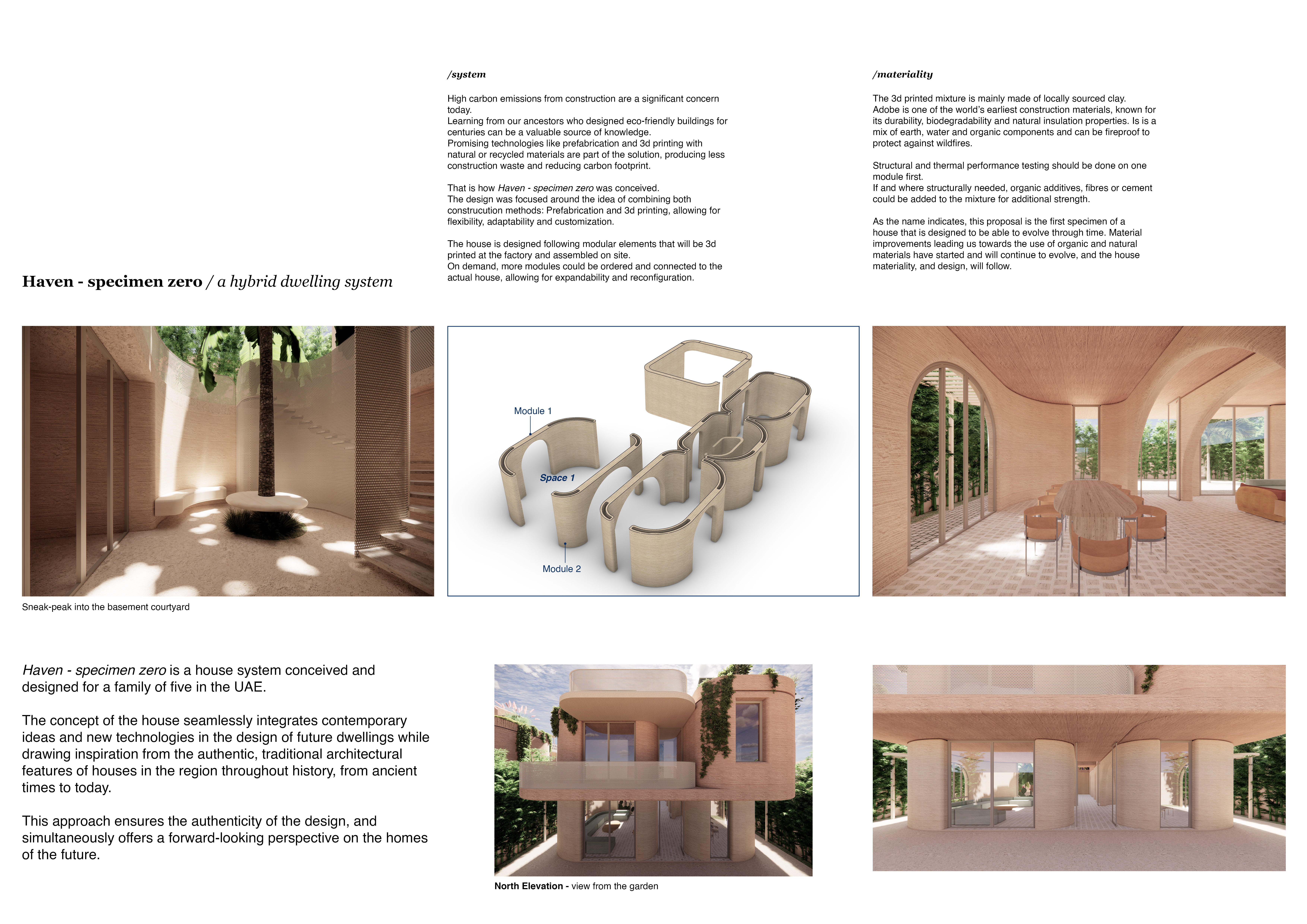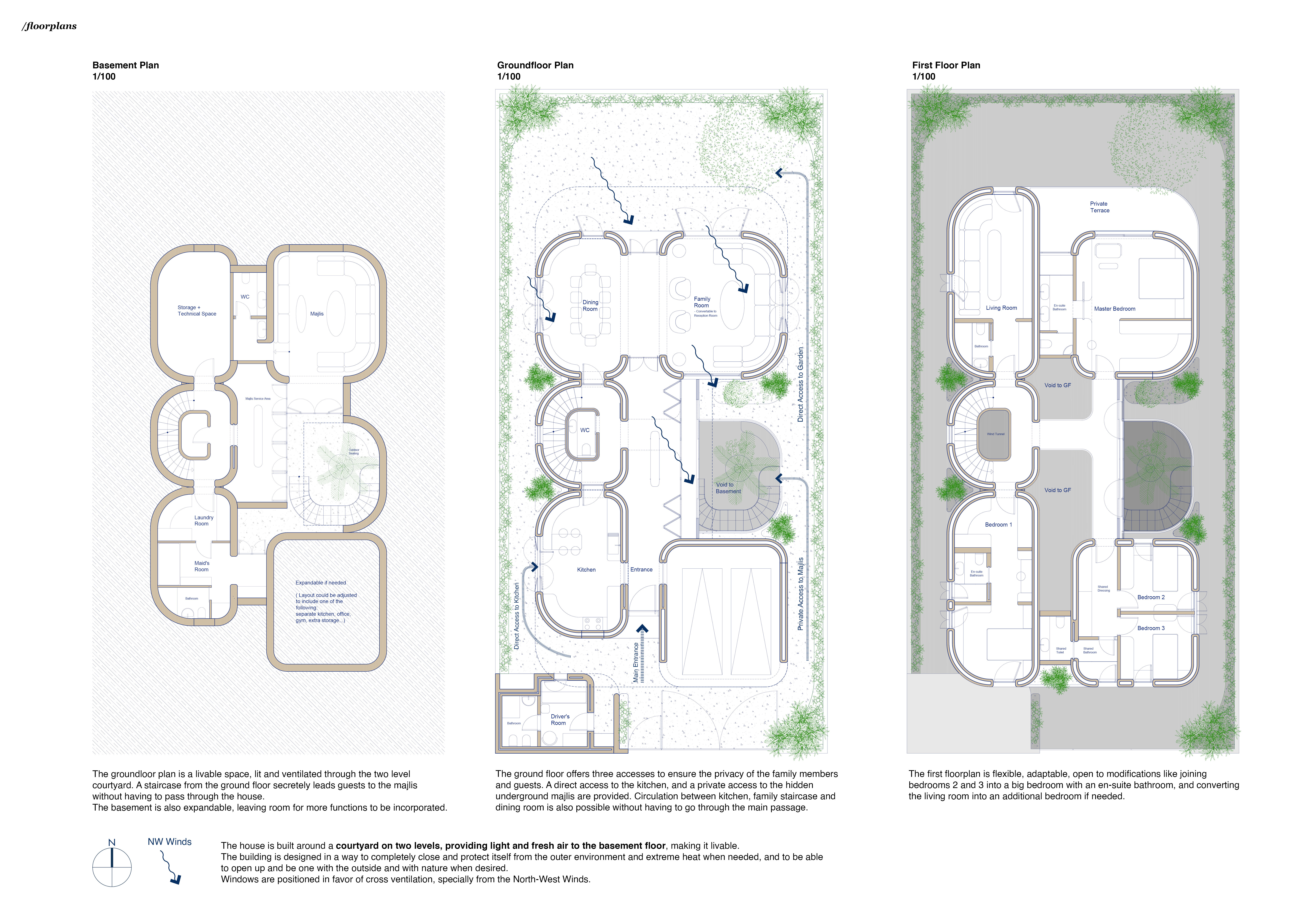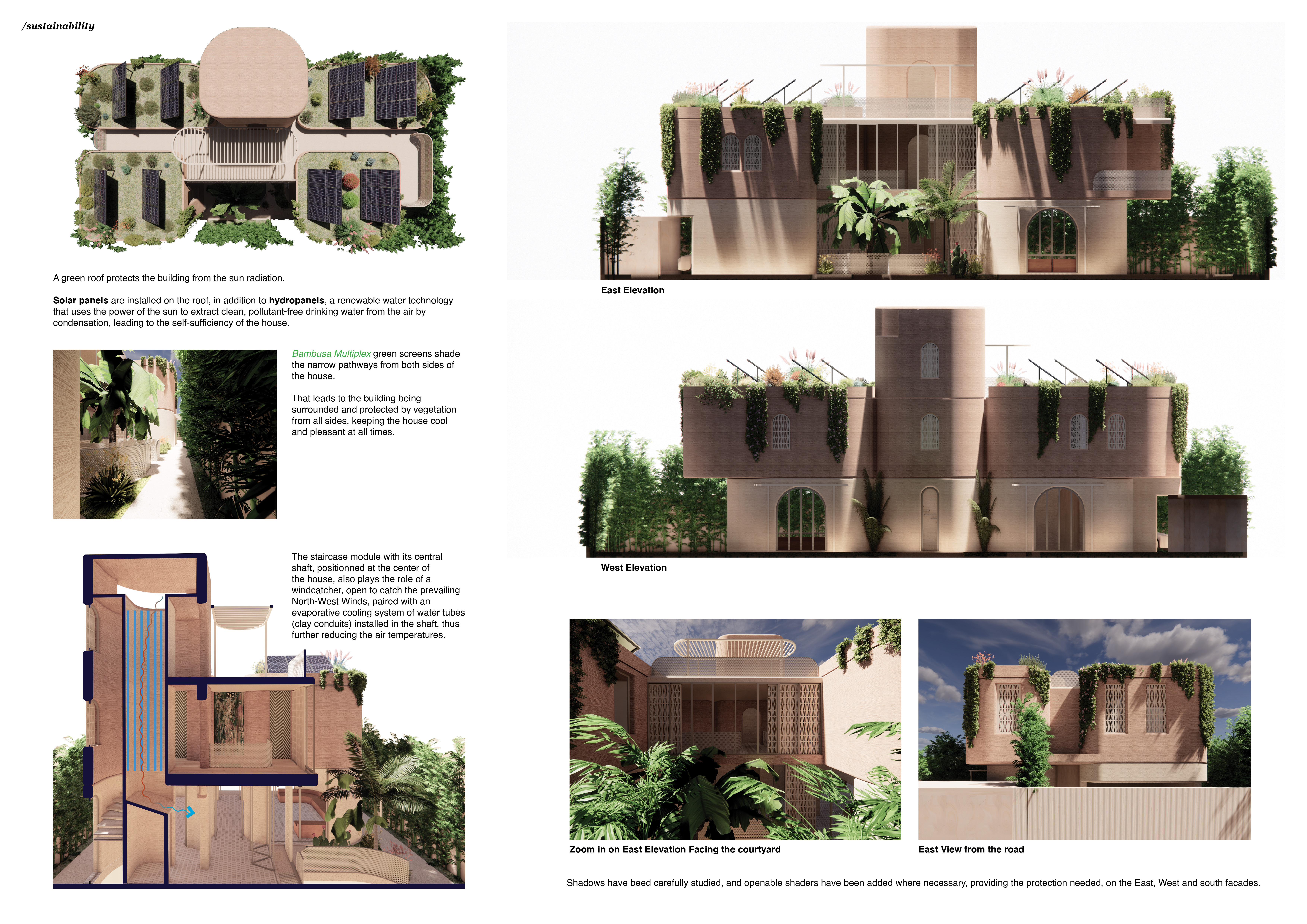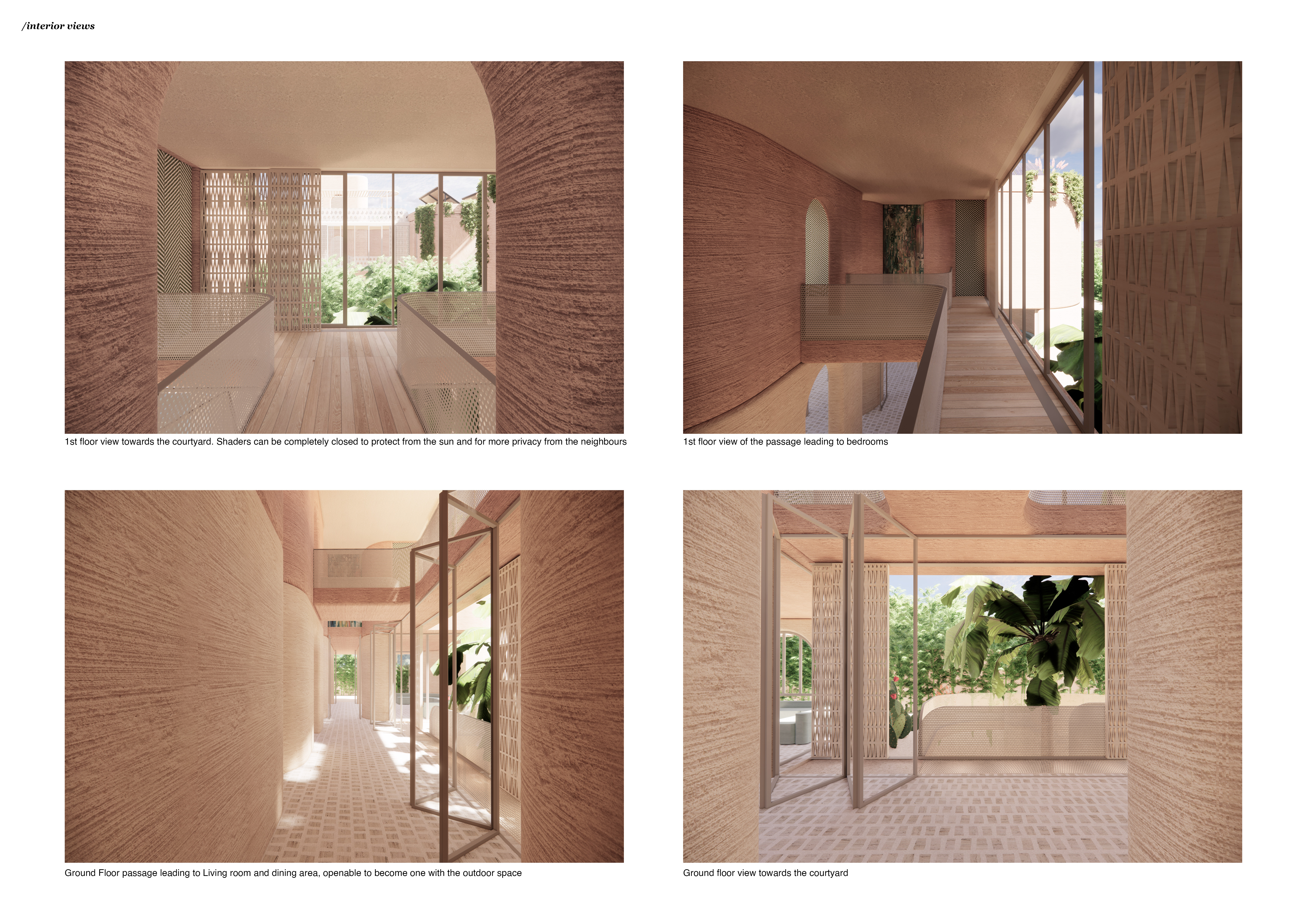5 key facts about this project
### Project Overview
**Project Name:** Haven - Specimen Zero
**Location:** United Arab Emirates (UAE)
**Designed For:** A family of five
Haven - Specimen Zero is a residential design focused on modern sustainable living while integrating traditional architectural practices. The project emphasizes a combination of innovative construction technologies and environmentally conscious strategies, addressing contemporary housing challenges within the unique climatic and cultural context of the UAE.
### Spatial Configuration
The layout of Haven - Specimen Zero exemplifies an understanding of family dynamics and functional living. The design incorporates open floor plans that facilitate movement between spaces, promoting interaction among occupants while preserving areas for privacy. Adaptability is a key feature, particularly on the first floor, where the arrangement of bedrooms can be customized to suit different needs over time. Ample natural light is achieved through large windows and strategically positioned skylights, fostering a bright indoor environment that connects seamlessly with the exterior landscape.
### Materiality and Sustainability Initiatives
Utilizing locally sourced materials, the project underscores sustainable construction practices. Adobe serves as a primary structural element, drawing on traditional techniques while offering durability. Biodegradable 3D printed components contribute to intricate design features and minimize waste. Bamboo is used for shading, enhancing cooling, and aesthetic value. Sustainability is further reinforced through various initiatives, including the installation of solar panels for energy efficiency and hydro panels that extract potable water. Passive design strategies, such as wind-catching features and rainwater harvesting systems, enhance resource conservation and reduce reliance on mechanical systems, illustrating the project’s commitment to environmental responsibility.


